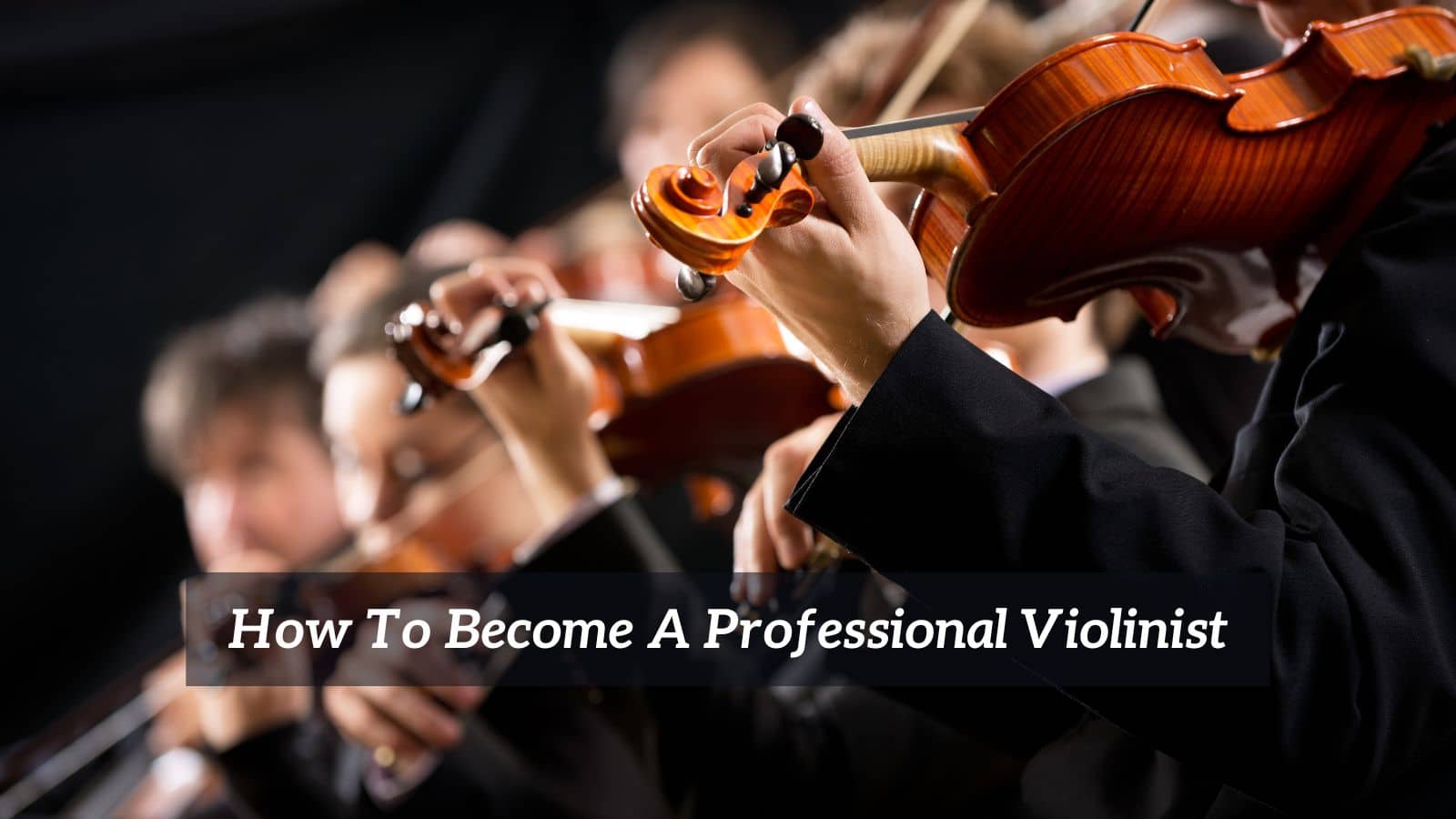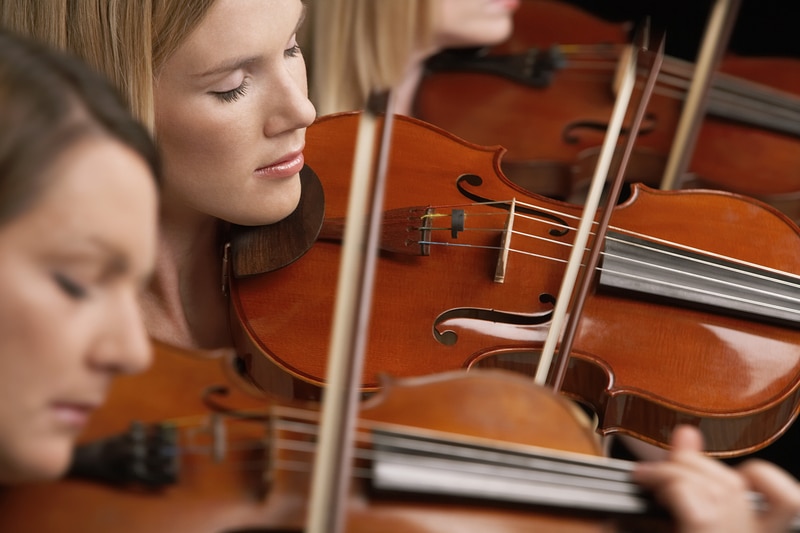
For many, music is just a hobby. For others it is something more serious – a career.
DISCLOSURE: This post may contain affiliate links, meaning when you click the links and make a purchase, we receive a commission.
If you have ever wished or wondered how to become a professional violinist, be sure to read this article though the end to learn about all the necessary steps to master this instrument and get your dream job!
Myths and truths
You may often hear that in order to become a professional musician you need to start learning the violin before you reach six or seven years old. That is not true.
What happens is that children do do not need to deal with all the problems that most adults need to deal with: organizing the house, work, etc. At this age everything is new and fun and the challenges are not viewed as such.
The second myth has to do with education. Many players believe they need to get a degree to get a job. In real life things do not work necessarily like that – to become a professional musician no degree is required.
What matters is how good you are and how you can show your emotions through the instrument. Many of the great artists never got a degree in music.
However, if you are in search of knowledge and finding the right person to guide you, you can always count on a good academic environment.
Also, if you want to become a teacher, especially an academic teacher, a degree in music is strongly advisable and will be a pre-requisite in most institutions.
How To Become A Professional Violinist
With that in mind, let’s see what are the most important steps to become a professional violinist:
1. Complete outfit
One of the most important things you need to have is a good instrument and proper accessories, including: music stand, metronome and of course a good bow.
Chinrest and shoulder rest are also needed and the correct choice is extremely important because you need to feel comfortable with the instrument in order to be keep a good practice routine.
Note: before buying anything by yourself, make sure you always ask help from a professional violinist.
2. Ear training
A good musician must have well-trained ears. Some individuals are naturally gifted with good aural skills while others may need to work harder in order to hone their ears.
A perfect sense of pitch and understanding of notes and chords is essential for those who want to master the art of violin playing. There are many ways the ear can be trained and most of them involve singing or solfeggio.
Finding the correct exercises – there are hundreds of drills on the internet – will help you gain confidence in your listening skills. And don’t forget: listen to your favorite players as much as you can – this is also part of the learning process.
3. Music reading
Music reading is a basic need for most violin-related careers. If you want to become an orchestral player or a music teacher focusing on classical music, your eyes need to be ready to read every note at a fast pace.
This skill is easy to acquire and nowadays there are dozens of cell phone applications that can also help you out even if your time is limited. If you can not read music well, the speed of your learning process may decrease significantly.
4. Daily practice
Agility, coordination, precision: it really takes a lot of training to master every skill necessary to become a good violinist. To do so, you need to practice the violin at least two hours a day.
At some point of your life you may even need to practice up to four hours a day. You will also need to find the correct books – among the most standards are those by Suzuki, Kreutzer, Sevcik, Schradieck, etc. always under the guidance of a good teacher.
5. Building repertoire
As a professional musician you may face some awkward situations: special requests from students, invitation for an event taking place the next day, etc.
If you have a list of songs that you can play by memory, you can definitely be the right person for the gig. Be prepared to build your repetoire from now and be ready to play any song anytime.
6. Having a good teacher
This is perhaps the most important topic in our list. Becoming a professional player takes years of diligent practice. For that, you will definitely need a guidance from the right person – someone who not only plays well, but knows how to teach well.
Seek for good references in your area. As we mentioned before, you do not necessarily need to get an academic degree, but you should at least search for the right musical environment so as to exchange knowledge and experience with other players as well.
7. Playing in groups
Playing the violin professionally involves, most of the time, playing with other people: orchestra, groups, bands. Being in perfect synchrony with others is an ability that needs to be acquired. You should get used to playing with your teacher or friends from your first lessons.
Always be engaged in group activities and learn how to listen to others and mix with the group. Another positive aspect of joining groups is that you can feel you are not alone, and you can always have support and feedback from more advanced players.
8. Having the future in mind
If you want to play in a big orchestra, a small ensemble, pursue a solo career or be a music teacher, you need to be prepared from now.
Some areas of interests may require different skills – orchestral players, for example, do not necessarily need to know how to improvise, whereas this skill is extremely important if you wish to become a jazz player, for instance.
Perhaps you want to compose your own songs, and for that you will also be encouraged to get lessons on harmony, counterpoint, etc.
9. Family support
The path to becoming a professional violinist may be somewhat long and not necessarily easy. You may face hard moments and may think you are not progressing as much as you expected, but if you are surrounded by other musicians you can learn and exchange experiences.
You may also need another kind of support: financial. If you haven’t reached an upper-intermediate level yet, you may not have enough money to afford a good instrument and not enough time to practice. At this stage all types of support are welcome.
10. Enjoying the process
Finally enjoy what you do. If you are happy, your daily practice will be more enjoyable and your progress will happen at a faster pace. Share your music with others and be ready to become a successful musician!


